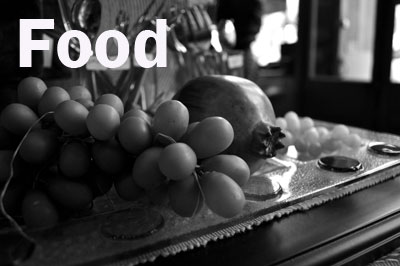New food-centred initiative

|

|
 
|

|

|
With their first Hands Across Niagara grant from the Anglican Diocese of Niagara in 2012, St. James Church supported the development of “community discussions” about the existence and extent of poverty in Centre Wellington. Out of this, a non-profit called the Centre Wellington Social Justice Group emerged with significant representation from across the community. The Centre Wellington Social Justice Group launched a Community Bus Service to serve the transportation needs of low-income people and reduce social exclusion of those who can’t drive.
The people at St. James will now partner with the Centre Wellington Social Justice Group and its link-building and action-oriented work to support the development of food-centred justice initiatives. The Centre Wellington Social Justice Group has identified a group of organizations that want to work together to focus on community solidarity/inclusion, food security, employment training and experience, and eco-justice.
Using The Stop’s Community Food Centre model as a touchstone, St. James Church will work with the Centre Wellington Social Justice Group:
1. to forge a consensus around food initiatives as means to increased community solidarity/inclusion, food security, employment and eco-justice
2. to realize specific initiatives the community identifies as highest priority; and
3. to coordinate volunteer recruitment, retention and management, event scheduling, marketing/advertising, and growing/collecting/buying of local food.
Specific goals/actions must reflect community need and will emerge from the consensus-building discussions. These may include such actions as the St. James Community Garden group mentoring an Elora church to open a community garden; the Circles program meeting at an Elora restaurant, with food cooked and served by formerly unemployed youth; and the food grown in the 1.5-acre plot at a church in Inverhaugh being cooked in a collective kitchen to serve at the new Food Bank café.
The activities to be pursued
The following potential activities have been proposed, but when the community partners meet, the plans will be adjusted to reflect community needs and priorities:
1. First meeting with currently-identified partners – Jan
2. Half-day workshop to identify priorities/timelines for food-centred initiatives – Jan/Feb
3. Bridges Out of Poverty training – Feb
4. Website/facebook set up to share progress- Feb
5. Action planning meetings to coordinate/integrate initiatives-Jan-Jun
6. “Open Table” food-centred meetings around the community to share ideas beyond the central group – Feb/Mar
7. Concerted work to achieve at least 3 coordinated, integrated justice initiatives focused on community solidarity/inclusion, food security, employment training/experience and eco-justice – Feb – Dec.
Intended outcomes
1. At least three integrated, coordinated food-centred activities and programs across the community that address food insecurity and social exclusion by providing food at low cost in an inclusive way, and providing training and employment experience
2. Bridges out of Poverty (“BOP”) training completed by all involved to help us “address and reduce poverty in a comprehensive way” and build the potential for more initiatives in the future
